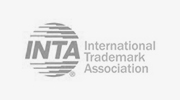11 May 2022
The CNMC has recently published a Communication, trying to answer the question of whether influencers, and the communications they carry out through non-traditional media, are considered as an audiovisual communication service under the terms of the LGCA and subject to the supervision of the CNMC.
It sets out the criteria that the CNMC must take into account when analysing the activities of influencers and their possible relationship within the scope of the LGCA (General Law on Audiovisual Communication), in order for the Commission to demand compliance with the current regulatory framework.
In order for an activity in the audiovisual sector to be classified as an audiovisual communication service under the terms of the LGCA and subject to the supervision of the CNMC, the following seven requirements must cumulatively concur, according to the Commission’s proposal:
- It must be a cost-effective service.
- The provider must bear editorial responsibility for the content he offers.
- It should be a service aimed at the general public.
- The function of content should be primarily to inform, entertain or educate.
- Its main purpose should be the provision of programmes.
- The programmes created must be audiovisual.
- Programmes should be provided through electronic communications networks.
Furthermore, it points out a very relevant fact, and that is the TERRITORIAL aspect of the application of the regulation: as required by the Audiovisual Communication Directive, the “country of origin principle” must be respected.
However, regardless of the application of the country of origin principle in the EU, those providers who are providing services in Spain will be subject to this Communication (under the supervision of the CNMC), regardless of the country in which they are domiciled. Let us remember that many Spanish influencers are domiciled in other countries. However, it seems that this situation does NOT exempt them from compliance with audiovisual regulations.
In fact, since the entry into force of the LGCA, the existence of providers domiciled outside Spain who are registered in the State Register of Audiovisual Communication Service Providers, and which the CNMC monitors to ensure that they comply with the LGCA, has been accepted as a matter of course. These providers, in accordance with the aforementioned Article 4.3 of the Royal Decree on the Register, must have a representative domiciled in Spain for notification purposes, unless the country of origin principle applies because they are in a Member State of the European Union.
In short, this Communication is a further guide to shed light on the regulation of vloggers or influencers and their different communications on social media. It is no cliché that technology and media are always one step ahead of regulation, and this is a clear reflection of that. This communication is part of the “strategy for the supervision and regulation of video-sharing platforms and the providers that rely on them (influencers)”.
It is surprising to see that in the communication it is repeated on several occasions that, of the contributions coming from various actors in the sector, none come from those new audiovisual actors who could be qualified as providers, since they did not participate in this consultative process. The question is, are influencers really reluctant to have their figure regulated? Does it harm them?
From our point of view, the fact that there is more regulation around an issue always provides greater transparency and security for economic operators.




























Comentarios
No Comments